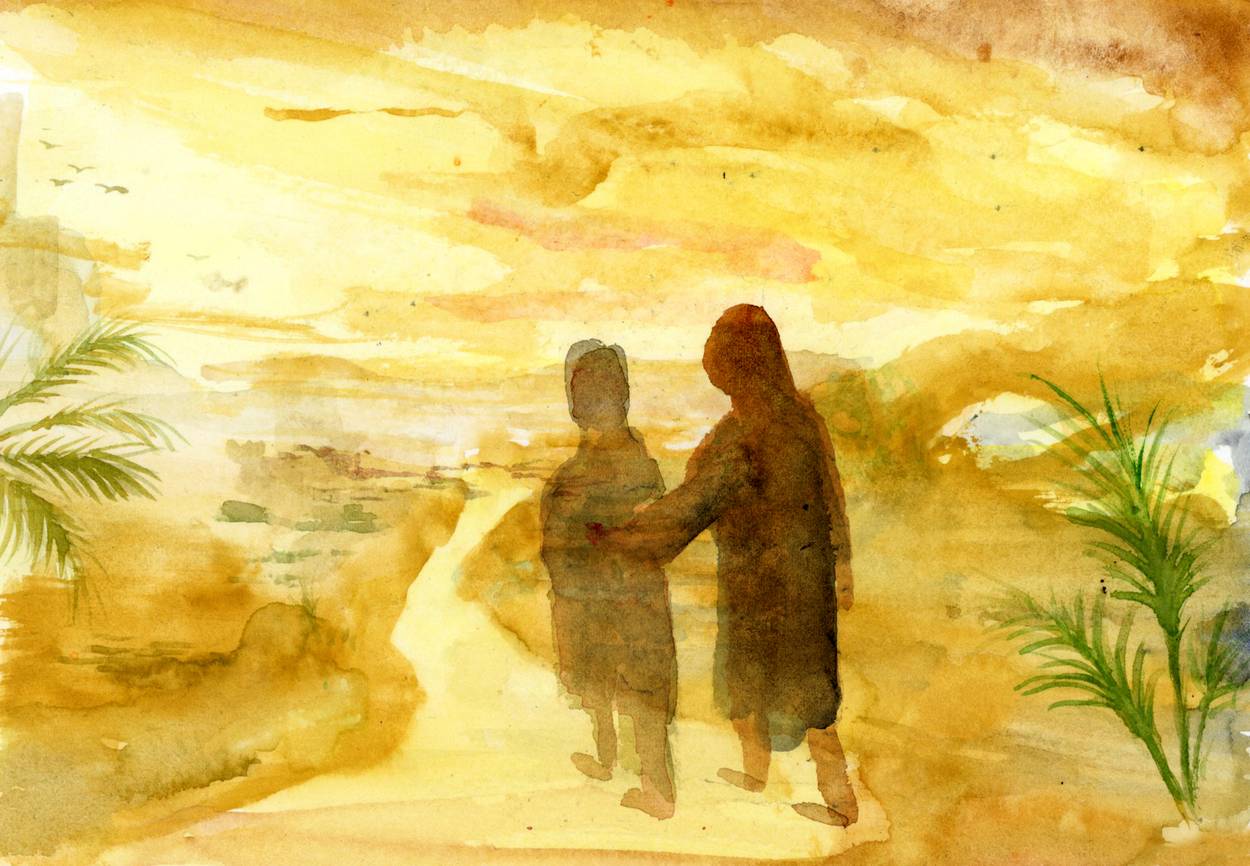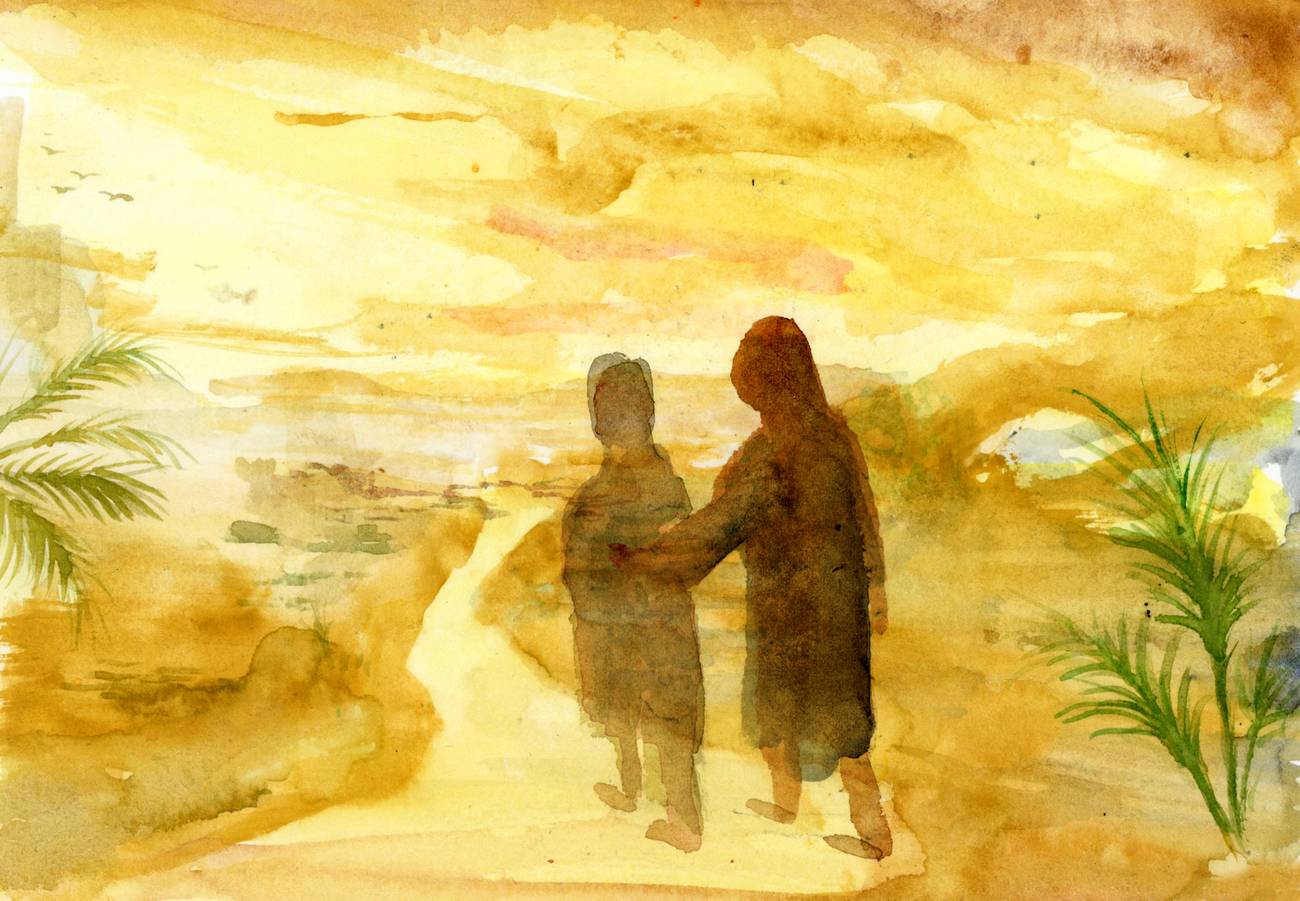How to Cure Loneliness
The Book of Ruth delivers an ancient prescription to a thoroughly modern condition




No one is laughing at the U.K.’s Minister for Loneliness now. When Tracey Crouch was appointed to the position by then-Prime Minister Theresa May in early 2018, more than a few snickers could be heard across the pond. This past month, former U.S. Surgeon General Dr. Vivek Murthy published Together, documenting the early signs of an American “social recession” he witnessed during his 2014-2017 tenure. Even prior to quarantines and social distancing, the nation’s former top doctor was already lamenting the isolation felt by so many across the U.S. “Overcoming loneliness and building a more connected future is an urgent mission that we can and must tackle together,” he wrote during those hazy pre-pandemic days.
Synagogue doors are still shuttered, which means we won’t get to read the biblical Book of Ruth on the upcoming holiday of Shavuot, but if you’re looking to fight isolation, loneliness, and the other social plagues of the moment, look no further than this short but stunning tale. More, perhaps, than any other biblical text, Ruth’s story feels incredibly raw and relevant, a prescription for all of us who are aching to connect in a society that grows increasingly more alienating.
In case you haven’t read the book in a while, here’s a refresher: Set around 1100 BCE, it begins during a famine, the economic recession of biblical times. An absence of centralized and unifying political leadership forces individuals to seek their own means of survival. An Israelite couple, Elimelech and Naomi, leave their homes to seek sustenance in the neighboring nation of Moab. After settling there, Elimelech dies, as do the couple’s two adult sons. While mourning the losses of their husbands, the sons’ Moabite widows, Ruth and Orpah—the latter being Oprah Winfrey’s actual first name—summon the psychological strength to salvage what remains of their future. Orpah decides to remain in Moab. But Ruth offers an altruistic affirmation so lyrical it has been sung millennia later by musical luminaries Bing Crosby, Mahalia Jackson, and Leonard Cohen.
“Whither thou goest, I will go; and where thou lodgest, I will lodge: thy people shall be my people, and thy God my God.”
Having pledged allegiance to her mother-in-law, the pair travel the 50 miles to Bethlehem—literally meaning the House of Bread—where food is newly available. Seeing the formerly wealthy Naomi walk back into town, her former neighbors can’t believe their eyes. They exclaim aloud, upon seeing the bedraggled old widow and her unrecognized companion, “Is this really Naomi?”
In a heartbreaking comment, Naomi replies that her name, which translates to “pleasant,” should be changed to Mara, or “bitter,” a fitting description of her state of mind. It should come as little surprise, then, that no one rushes to Naomi’s aide, leaving Ruth as the family’s sole breadwinner. The newly arrived immigrant goes to work in the fields, collecting the grain left there, per Torah law, by the wealthy landowners obliged to care for the poor. Though in John Keats’ poetic imagining Ruth “stood in tears amid the alien corn,” the biblical text portrays no sadness on Ruth’s part, only a gritty determination to keep her word and feed herself and Naomi.
Eventually, Ruth’s efforts are rewarded. She happens upon the field of Boaz, a distant relative of Naomi’s, and they marry. Their union produces communal restoration in the form of the eventual King David, and, in the Christian tradition, Jesus. World history, it turns out, hinged on Ruth’s decision to remain faithful to Naomi. The book ends shortly after an emotionally and physically revived Naomi, the once-wailing widow now radiant with joy, embraces the baby born to Ruth and Boaz as if it were her own. His name is Oved, or “worker,” an indication that everything that happened in the book happened because of the hard work of human beings, not necessarily the miraculous intervention of God. Indeed, the Almighty is rarely mentioned in the book; the story of Ruth is the most intimate, human-scale domestic drama in the Bible, a book otherwise dedicated to the heroic ploys of larger-than-life prophets, kings, and conquerors.
The book’s approachable scale is the first clue that the story it tells is one that modern readers may find particularly relatable. But look inside and you’ll be shocked by how ahead of her time Ruth truly was. First of all, long before we learned to accept nontraditional families as valid and valuable, Ruth and Naomi give us a reminder that the family unit comes in all shapes and sizes. They’re two women, both widowed and poor, living together in a patriarchal society dominated by wealthy men and reminding us that staying together and offering the mutual support we so desperately need can literally save our lives.
Science eventually caught up with Ruth’s wisdom: In recent decades, researchers have discovered how loneliness impairs judgment, increases stress, depression, and mortality rates, while friendship improves both psychological and physical health, including the body’s ability to overcome heart disease and viruses. Not that we need clinical studies to remind us why human interaction is so important: Open the window at 7 p.m. each night and you’ll hear people clapping and cheering, not only to thank our health care workers but also to remind ourselves that we are all in this together, and that even though we may not be able to see and talk to friends and neighbors, they are still there, waiting for the opportunity to reconnect.
But Ruth isn’t just a paragon of making your own family, even amid devastation. She’s also the embodiment of another virtue, giving, that physicians are now confirming can do much to boost both emotional and physical well-being. “Giving and serving others doesn’t just strengthen our communities,” writes Murthy. “It enriches our lives and strengthens our own bonds to the community and our sense of value and purpose.” Small acts of selfless kindness like Ruth’s lay the foundation for our individual and communal salvation.
Finally, Ruth delivers one more crucial lesson for us reading her story today: If you want it, work for it. Naomi’s self-pity, while understandable, led her nowhere. Ruth’s resilience, on the other hand, gave both women the happy ending they so richly deserved. Ours is a culture quick to assign blame and claim the mantle of victimhood; Ruth teaches us to forgo these tempting feelings for the harder yet ultimately more effective virtue of never, ever giving up.
There’s a theological lesson in there, too: Pleased with the tremendous character shown by this impoverished immigrant, God grants her not only a husband and a son but the privilege of becoming the mother of Judaism’s most illustrious family, the one, we’re told, that would eventually bring about the Messiah. The moral of the story is clear: Work hard, believe in yourself, be true to your friends, find your family when you can, and you will bring about redemption, not only to you but, one day, to the entire world.
Rabbi Dr. Stuart Halpern is Senior Adviser to the Provost of Yeshiva University and Deputy Director of Y.U.’s Straus Center for Torah and Western Thought. His books include The Promise of Liberty: A Passover Haggada, which examines the Exodus story’s impact on the United States, Esther in America, Gleanings: Reflections on Ruth and Proclaim Liberty Throughout the Land: The Hebrew Bible in the United States.